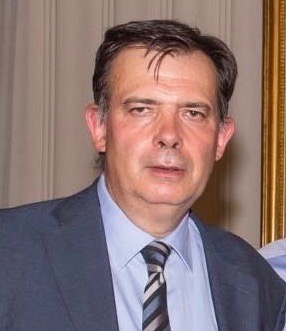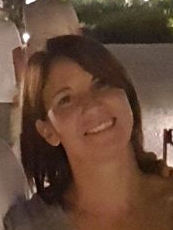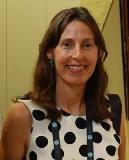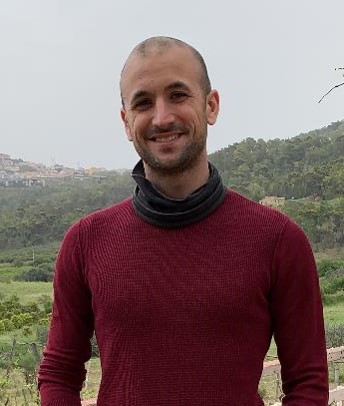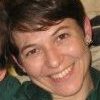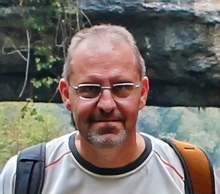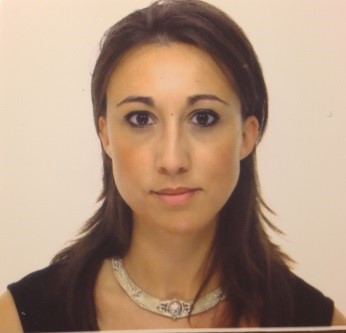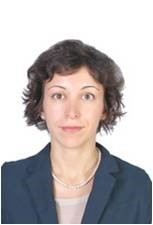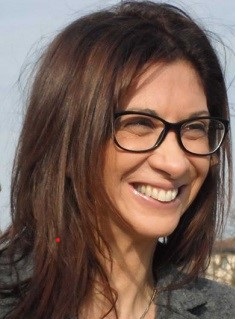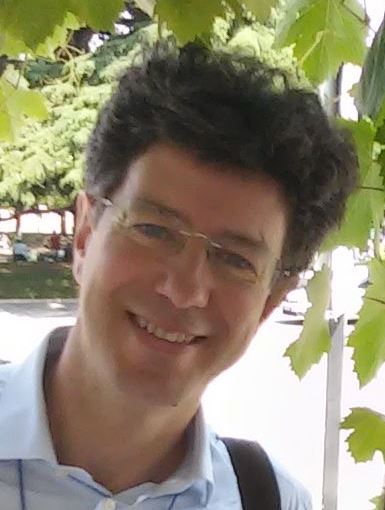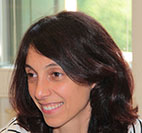Studiare
In questa sezione è possibile reperire le informazioni riguardanti l'organizzazione pratica del corso, lo svolgimento delle attività didattiche, le opportunità formative e i contatti utili durante tutto il percorso di studi, fino al conseguimento del titolo finale.
Calendario accademico
Il calendario accademico riporta le scadenze, gli adempimenti e i periodi rilevanti per la componente studentesca, personale docente e personale dell'Università. Sono inoltre indicate le festività e le chiusure ufficiali dell'Ateneo.
L’anno accademico inizia il 1° ottobre e termina il 30 settembre dell'anno successivo.
Calendario didattico
Il calendario didattico indica i periodi di svolgimento delle attività formative, di sessioni d'esami, di laurea e di chiusura per le festività.
| Periodo | Dal | Al |
|---|---|---|
| Primo semestre | 3-ott-2022 | 27-gen-2023 |
| Secondo semestre | 6-mar-2023 | 16-giu-2023 |
| Sessione | Dal | Al |
|---|---|---|
| Sessione invernale d'esame | 30-gen-2023 | 3-mar-2023 |
| Sessione estiva d'esame | 19-giu-2023 | 31-lug-2023 |
| Sessione autunnale d'esame | 4-set-2023 | 29-set-2023 |
| Sessione | Dal | Al |
|---|---|---|
| sessione estiva di laurea | 14-lug-2023 | 14-lug-2023 |
| Sessione autunnale di laurea | 10-ott-2023 | 10-ott-2023 |
| Sessione invernale di laurea | 7-mar-2024 | 7-mar-2024 |
| Periodo | Dal | Al |
|---|---|---|
| Ponte Festa di tutti i Santi | 31-ott-2022 | 1-nov-2022 |
| Ponte dell'Immacolata Concezione | 8-dic-2022 | 9-dic-2022 |
| Vacanze natalizie | 23-dic-2022 | 8-gen-2023 |
| Vacanze di Pasqua | 7-apr-2023 | 10-apr-2023 |
| Festa della Liberazione | 24-apr-2023 | 25-apr-2023 |
| Festa del lavoro | 1-mag-2023 | 1-mag-2023 |
| Festa del Santo Patrono | 21-mag-2023 | 21-mag-2023 |
| Festa della Repubblica | 2-giu-2023 | 2-giu-2023 |
| Chiusura estiva | 14-ago-2023 | 19-ago-2023 |
Calendario esami
Gli appelli d'esame sono gestiti dalla Unità Operativa Segreteria Corsi di Studio Scienze e Ingegneria.
Per consultazione e iscrizione agli appelli d'esame visita il sistema ESSE3.
Per problemi inerenti allo smarrimento della password di accesso ai servizi on-line si prega di rivolgersi al supporto informatico della Scuola o al servizio recupero credenziali
Per dubbi o domande leggi le risposte alle domande più frequenti F.A.Q. Iscrizione Esami
Docenti
 claudio.tomazzoli@univr.it
claudio.tomazzoli@univr.it
Piano Didattico
Il piano didattico è l'elenco degli insegnamenti e delle altre attività formative che devono essere sostenute nel corso della propria carriera universitaria.
Selezionare il piano didattico in base all'anno accademico di iscrizione.
1° Anno
| Insegnamenti | Crediti | TAF | SSD |
|---|
Due insegnamenti a scelta2° Anno Attivato nell'A.A. 2023/2024
| Insegnamenti | Crediti | TAF | SSD |
|---|
Tre insegnamenti a scelta| Insegnamenti | Crediti | TAF | SSD |
|---|
Due insegnamenti a scelta| Insegnamenti | Crediti | TAF | SSD |
|---|
Tre insegnamenti a scelta| Insegnamenti | Crediti | TAF | SSD |
|---|
Legenda | Tipo Attività Formativa (TAF)
TAF (Tipologia Attività Formativa) Tutti gli insegnamenti e le attività sono classificate in diversi tipi di attività formativa, indicati da una lettera.
Biologia cellulare molecolare e applicazioni biotecnologiche (2022/2023)
Codice insegnamento
4S008240
Crediti
6
Lingua di erogazione
Italiano
Settore Scientifico Disciplinare (SSD)
AGR/07 - GENETICA AGRARIA
L'insegnamento è organizzato come segue:
Bioreattori vegetali teoria
Biologia cellulare molecolare teoria
Bioreattori vegetali laboratorio
Biologia cellulare molecolare laboratorio
Obiettivi di apprendimento
MODULO BIOLOGIA CELLULARE : - riconoscere la complessità della cellula eucariotica ed elencare i siti di produzione e di destinazione delle proteine con particolare enfasi sulla cellula vegetale; -definire i concetti di ”targeting” e “sorting” -descrivere i processi di formazione, selezione del carico, movimento e fusione delle vescicole nella cellula eucariotica; -individuare i diversi percorsi che le proteine devono compiere per giungere alla loro destinazione finale; -distinguere le diverse richieste di informazioni necessarie per l’indirizzamento di una proteina lungo la via costitutiva e lungo altri percorsi; -interpretare le modificazioni post-trasduzionali delle proteine lungo la via di secrezione nell’ottica del controllo di qualità; -acquisire un linguaggio scientifico appropriato per la materia in esame; -applicare le conoscenze acquisite a problemi pratici di ingegnerizzazione della cellula eucariotica. Laboratorio -preparare campioni vegetali freschi per l’osservazione al microscopio ottico a fluorescenza e al micrsocopio confocale; -utilizzare varie tipologie di microscopio ottico a fluorescenza: convenzionale, rovesciato, stereomicroscopio, microscopio confocale; -scegliere le proteine reporter e le sonde fluorescenti per marcare vari compartimenti sub-cellulari in base alla complementarietà degli spettri di emissione e alle facilities disponibili (tipi di microscopi e filtri); Bioreattori vegetali: -definire il concetto di “Molecular farming”; -distinguere fra sistemi di espressione stabile e transiente di proteine nei vegetali; -descrivere le maggiori applicazioni del molecular farming, inclusa la produzione di nanomateriali, di anticorpi e di vaccini; -discutere le varie strategie per l’ottimizzazione della produzione di proteine eterologhe in sistemi vegetali, incluse quelle basate sulla glico-ingegnerizzazione, e il loro ambito di applicazione; -valutare l’impatto delle varie strategie di “downstream processing” nel processo produttivo; -progettare sistemi di produzione di molecole di interesse medico ed industriale attraverso l’utilizzo delle piante. Laboratorio -progettare costrutti con diverse proteine reporter fluorescenti in grado di accumularsi in diversi comparti subcellulari; - realizzare costrutti con diverse proteine reporter fluorescenti in grado di accumularsi in diversi comparti subcellulari; -esprimere transientemente tali proteine nelle foglie della specie modello Nicotiana benthamiana; -analizzare la resa produttiva nei diversi approcci utilizzati mediante western blotting semi-quantitativo e valutare l’efficacia di ciascun approccio.
Tipologia di Attività formativa D e F
Le attività formative di tipologia D sono a scelta dello studente, quelle di tipologia F sono ulteriori conoscenze utili all’inserimento nel mondo del lavoro (tirocini, competenze trasversali, project works, ecc.). In base al Regolamento Didattico del Corso, alcune attività possono essere scelte e inserite autonomamente a libretto, altre devono essere approvate da apposita commissione per verificarne la coerenza con il piano di studio. Le attività formative di tipologia D o F possono essere ricoperte dalle seguenti attività.
1. Insegnamenti impartiti presso l'Università di Verona
Comprendono gli insegnamenti sotto riportati e/o nel Catalogo degli insegnamenti (che può essere filtrato anche per lingua di erogazione tramite la Ricerca avanzata).
Modalità di inserimento a libretto: se l'insegnamento è compreso tra quelli sottoelencati, lo studente può inserirlo autonomamente durante il periodo in cui il piano di studi è aperto; in caso contrario, lo studente deve fare richiesta alla Segreteria, inviando a carriere.scienze@ateneo.univr.it il modulo nel periodo indicato.
2. Attestato o equipollenza linguistica CLA
Oltre a quelle richieste dal piano di studi, per gli immatricolati dall'A.A. 2021/2022 vengono riconosciute:
- Lingua inglese: vengono riconosciuti 3 CFU per ogni livello di competenza superiore a quello richiesto dal corso di studio (se non già riconosciuto nel ciclo di studi precedente).
- Altre lingue e italiano per stranieri: vengono riconosciuti 3 CFU per ogni livello di competenza a partire da A2 (se non già riconosciuto nel ciclo di studi precedente).
Tali cfu saranno riconosciuti, fino ad un massimo di 6 cfu complessivi, di tipologia F se il piano didattico lo consente, oppure di tipologia D. Ulteriori crediti a scelta per conoscenze linguistiche potranno essere riconosciuti solo se coerenti con il progetto formativo dello studente e se adeguatamente motivati.
Gli immatricolati fino all'A.A. 2020/2021 devono consultare le informazioni che si trovano qui.
Modalità di inserimento a libretto: richiedere l’attestato o l'equipollenza al CLA e inviarlo alla Segreteria Studenti - Carriere per l’inserimento dell’esame in carriera, tramite mail: carriere.scienze@ateneo.univr.it
Attenzione: agli studenti, che hanno conseguito il livello B2 d’inglese nelle loro carriere triennali, si sottolinea la necessità di sostituire il livello B2 d’inglese completo, previsto dal piano didattico, con il livello C1 informatizzato d’inglese oppure di acquisire altra competenza linguistica in una lingua comunitaria almeno di livello B1 completo.
3. Competenze trasversali
Scopri i percorsi formativi promossi dal TALC - Teaching and learning center dell'Ateneo, destinati agli studenti regolarmente iscritti all'anno accademico di erogazione del corso https://talc.univr.it/it/competenze-trasversali
Modalità di inserimento a libretto: non è previsto l'inserimento dell'insegnamento nel piano di studi. Solo in seguito all'ottenimento dell'Open Badge verranno automaticamente convalidati i CFU a libretto. La registrazione dei CFU in carriera non è istantanea, ma ci saranno da attendere dei tempi tecnici.
4. CONTAMINATION LAB
Il Contamination Lab Verona (CLab Verona) è un percorso esperienziale con moduli dedicati all'innovazione e alla cultura d'impresa che offre la possibilità di lavorare in team con studenti e studentesse di tutti i corsi di studio per risolvere sfide lanciate da aziende ed enti. Il percorso permette di ricevere 6 CFU in ambito D o F. Scopri le sfide: https://www.univr.it/clabverona
ATTENZIONE: Per essere ammessi a sostenere una qualsiasi attività didattica, incluse quelle a scelta, è necessario essere iscritti all'anno di corso in cui essa viene offerta. Si raccomanda, pertanto, ai laureandi delle sessioni di dicembre e aprile di NON svolgere attività extracurriculari del nuovo anno accademico, cui loro non risultano iscritti, essendo tali sessioni di laurea con validità riferita all'anno accademico precedente. Quindi, per attività svolte in un anno accademico cui non si è iscritti, non si potrà dar luogo a riconoscimento di CFU.
5. Periodo di stage/tirocinio
Oltre ai CFU previsti dal piano di studi (verificare attentamente quanto indicato sul Regolamento Didattico): qui informazioni su come attivare lo stage.
Insegnamenti e altre attività che si possono inserire autonomamente a libretto
| anni | Insegnamenti | TAF | Docente |
|---|---|---|---|
| 1° 2° | Linguaggio programmazione Python | D |
Carlo Combi
(Coordinatore)
|
| 1° 2° | Storia e didattica della geologia | D |
Guido Gonzato
(Coordinatore)
|
Prospettive
Avvisi degli insegnamenti e del corso di studio
Per la comunità studentesca
Se sei già iscritta/o a un corso di studio, puoi consultare tutti gli avvisi relativi al tuo corso di studi nella tua area riservata MyUnivr.
In questo portale potrai visualizzare informazioni, risorse e servizi utili che riguardano la tua carriera universitaria (libretto online, gestione della carriera Esse3, corsi e-learning, email istituzionale, modulistica di segreteria, procedure amministrative, ecc.).
Entra in MyUnivr con le tue credenziali GIA: solo così potrai ricevere notifica di tutti gli avvisi dei tuoi docenti e della tua segreteria via mail e a breve anche tramite l'app Univr.
Prova Finale
Scadenziari e adempimenti amministrativi
Per gli scadenziari, gli adempimenti amministrativi e gli avvisi sulle sessioni di laurea, si rimanda al servizio Sessioni di laurea - Scienze e Ingegneria.
Necessità di attivare un tirocinio per tesi
Per stage finalizzati alla stesura della tesi di laurea, non è sempre necessaria l'attivazione di un tirocinio tramite l'Ufficio Stage. Per maggiori informazioni, consultare il documento dedicato, che si trova nella sezione "Documenti" del servizio dedicato agli stage e ai tirocini.
Regolamento della prova finale
Caratteristiche della prova finale
Per essere ammessi alla prova finale occorre avere conseguito tutti i crediti nelle attività formative previste dal piano di studi. Le attività formative relative alla preparazione della prova finale per il conseguimento del titolo e la relativa verifica consistono nella preparazione e discussione di un elaborato scritto (tesi di laurea) frutto di lavoro sperimentale originale compiuto sotto la guida di un relatore presso una struttura universitaria, o anche esterna all'Università, in Italia e/o all'estero, purché riconosciuta e accettata a tal fine secondo quanto previsto nel Regolamento didattico del corso di studio.
Le attività formative relative alla preparazione della prova finale hanno un'estensione in crediti corrispondente ad un impegno di almeno 8 mesi a tempo pieno.
L'elaborato scritto può anche essere redatto in lingua inglese.
La commissione preposta alla prova finale esprime una valutazione riferita all'intero percorso di studi tenendo conto della coerenza tra obiettivi formativi e obiettivi professionali, la capacità di elaborazione intellettuale e di comunicazione e la maturità culturale del candidato.
Modalità di svolgimento della prova finale
La Tesi di Laurea costituisce un importante ed imprescindibile passo nella formazione del futuro Laureato Magistrale in Biotecnologie Agro-alimentari. La Tesi di Laurea consiste nella presentazione in forma scritta di una dissertazione, elaborata in modo originale sulla base di un lavoro di ricerca prevalentemente sperimentale, intendendo con tale termine anche le tesi a progettualità di calcolo e simulazione dì esperimenti. Nel corso dello svolgimento della Tesi, il laureando dovrà, sotto la guida del Relatore e di eventuali Correlatori, affrontare lo studio e l’approfondimento di tematiche delle Biotecnologie Agroalimentari o di discipline strettamente correlate.
La Tesi può essere redatta in lingua italiana o inglese e può essere discussa sia in inglese che in italiano, anche mediante l’ausilio di supporti multimediali quali slides, filmati e immagini.
Ogni Tesi può essere interna o esterna a seconda che sia svolta presso l’Università di Verona o in collaborazione con altro ente, rispettivamente.
Può rivestire il ruolo di relatore di tesi ogni docente del Corso di Laurea, o altro docente afferente al Dipartimento di Biotecnologie, o altro docente dell’Ateneo, in quest’ultimo caso previa autorizzazione del Collegio Didattico.
Possono svolgere il ruolo di Correlatori i ricercatori operanti in Istituti di ricerca extra-universitari, assegnisti di ricerca, titolari di borsa di studio postdottorato, dottorandi di ricerca, cultori della materia ed esperti nel settore considerato nella Tesi.
I Controrelatori devono essere docenti dell’Ateneo. Sono nominati dalla Commissione Didattica del Collegio Didattico almeno 25 giorni prima della discussione della Tesi, verificata l’ammissibilità dello studente a sostenere l’esame di Laurea Magistrale. Per quanto riguarda gli aspetti giuridici (e.g., proprietà intellettuale dei risultati) legati alla Tesi e ai risultati ivi contenuti si rimanda alla legislazione vigente in materia ed ai regolamenti di Ateneo.
Alla Prova Finale sono dedicati almeno 32 CFU, per un lavoro sperimentale da distribuire in almeno 8 mesi.
Ogni Tesi di Laurea prevede un Relatore, eventualmente affiancato da uno o più Correlatori, e due Controrelatori. Nel loro insieme essi costituiscono la Commissione di Valutazione.
Per ogni presentazione sono a disposizione circa 30 minuti più la discussione.
I criteri su cui è chiamata ad esprimersi la Commissione di Valutazione sono i seguenti:
1. livello di approfondimento del lavoro svolto, in relazione allo stato dell’arte dei settori disciplinari di pertinenza alle Biotecnologie;
2. avanzamento conoscitivo e/o tecnologico apportato dalla Tesi;
3. impegno critico espresso dal laureando;
4. impegno sperimentale espresso dal laureando;
5. autonomia di lavoro espressa dal laureando;
6. significatività delle metodologie impiegate;
7. accuratezza nell’impostazione e nella stesura della tesi;
8. chiarezza espositiva.
I controrelatori non sono chiamati ad esprimersi sul punto 5.
Alla fine della presentazione, la Commissione di Valutazione stilerà una breve nota di valutazione con espressione di un voto sintetico (da 0 a 8). Questa nota, unitamente a una copia dell’elaborato, sarà trasferita alla Segreteria di Corso di Laurea, entro il giorno precedente la seduta di laurea, per la successiva formulazione del voto definitivo da parte della Commissione di Laurea che procederà alla proclamazione.
Voto di Laurea
Il voto di Laurea (espresso in centodecimi) è un valore intero compreso tra 66/110 e 110/110 e viene formato dalla somma, arrotondata al numero intero più vicino (e.g., 93.50 diventa 94, 86.49 diventa 86), dei seguenti addendi:
1) media pesata sui crediti e rapportata a 110 dei voti conseguiti negli esami di profitto;
2) valutazione del colloquio di Laurea e della Tesi secondo le seguenti modalità:
a) Al colloquio dì Laurea e alla Tesi sono attribuiti al massimo 11 punti. Essi saranno così distribuiti: 8 punti alla Commissione di Valutazione che valuterà il colloquio di Laurea e la Tesi secondo le seguenti modalità: attribuzione di un coefficiente compreso tra 0 e 1 (frazionario con una cifra decimale) per ciascuno dei punti 1-8 elencati sopra;
b) 3 punti alla Commissione di Laurea che si esprime in modo assembleare. La Commissione di Laurea attribuirà i punti in base alla valutazione del curriculum del laureando. In particolare: la presenza di eventuali lodi ottenute negli esami sostenuti, la partecipazione a stage ufficialmente riconosciuti dall’Ateneo, il superamento di esami in soprannumero e il raggiungimento della Laurea in tempi contenuti rispetto alla durata legale del corso degli studi possono essere utilizzati dalla Commissione per l’attribuzione del punteggio.
Il candidato che ottiene meno di 11 punti per la tesi può eventualmente avere un punto in più per la partecipazione ai programmi di internazionalizzazione, a discrezione della Commissione di laurea.
c) somma del punteggio derivante da a) e b)
Qualora la somma finale raggiunga 110/110, la Commissione di Laurea può decidere l’attribuzione della lode. Nel caso della proposta di laurea con lode lo studente deve avere una media ponderata minima di 103/110 (senza arrotondamenti) e aver conseguito almeno n. 1 lode. In base alle norme vigenti, la lode viene attribuita solo se il parere è unanime.
Tesi esterne
Una Tesi esterna viene svolta in collaborazione con un ente diverso dall’Università di Verona.
In tal caso, il Laureando dovrà preventivamente concordare il tema della Tesi con un relatore del Corso di laurea LM7.
Inoltre, è previsto almeno un correlatore appartenente all’ente esterno, quale riferimento immediato per lo studente nel corso dello svolgimento dell’attività di Tesi.
Relatore e correlatori devono essere indicati nella domanda di assegnazione Tesi.
Le modalità assicurative della permanenza dello studente presso l’Ente esterno sono regolate dalle norme vigenti presso l’Università di Verona. Se la Tesi si configura come un periodo di formazione presso tale ente, allora è necessario stipulare una convenzione tra l’Università e detto ente.
I risultati contenuti nella Tesi sono patrimonio in comunione di tutte le persone ed enti coinvolti. In particolare, i contenuti ed i risultati della Tesi sono da considerarsi pubblici. Per tutto quanto riguarda aspetti non strettamente scientifici (per esempio convenzioni, assicurazioni) ci si rifà alla delibera del S.A. del 12 gennaio 1999.
Elenco delle proposte di tesi e stage
| Proposte di tesi | Area di ricerca |
|---|---|
| Dinamiche della metilazione del DNA e loro contributo durante il processo di maturazione della bacca di vite. | Argomenti vari |
| Miglioramento del profilo nutrizionale e funzionale di sfarinati di cereali mediante fermentazione con batteri lattici | Argomenti vari |
| Risposte trascrittomiche a sollecitazioni ambientali in vite | Argomenti vari |
| Studio delle basi genomico-funzionali del processo di embriogenesi somatica in vite | Argomenti vari |
Modalità di frequenza
Come riportato nel Regolamento Didattico, non è previsto un obbligo generalizzato di frequenza. I singoli docenti sono tuttavia liberi di richiedere un minimo di ore di frequenza per l’ammissibilità̀ all’esame di profitto dell’insegnamento di cui sono titolari. In tal caso il controllo della frequenza alle attività didattiche è stabilito secondo modalità preventivamente comunicate agli studenti.

 +39 045 802 7839
+39 045 802 7839
